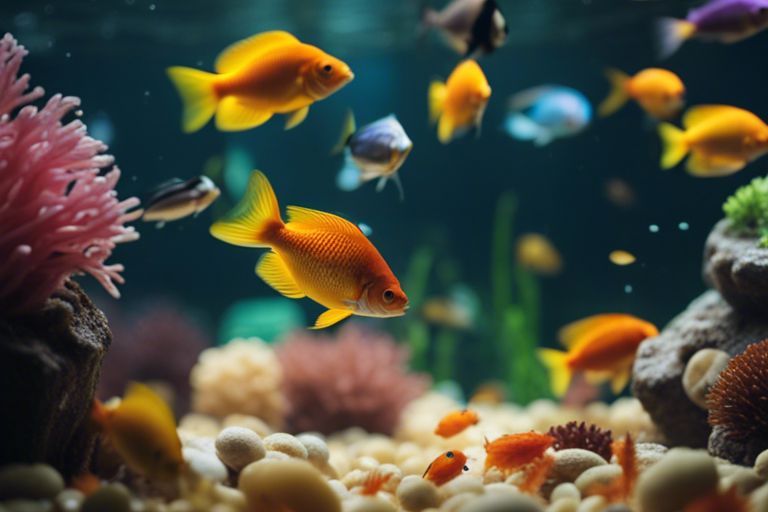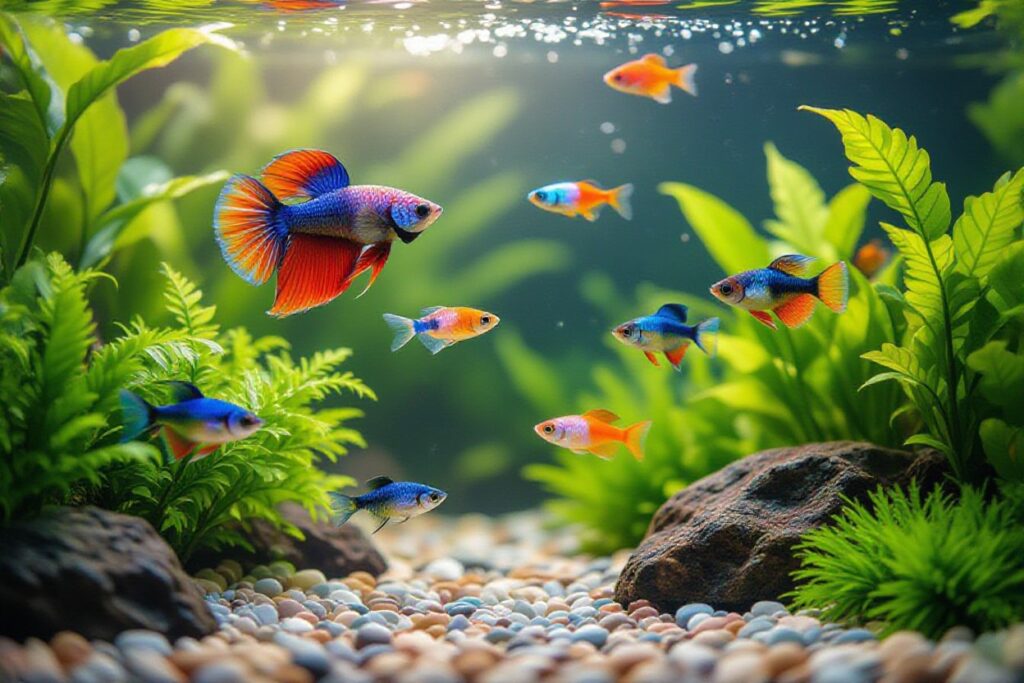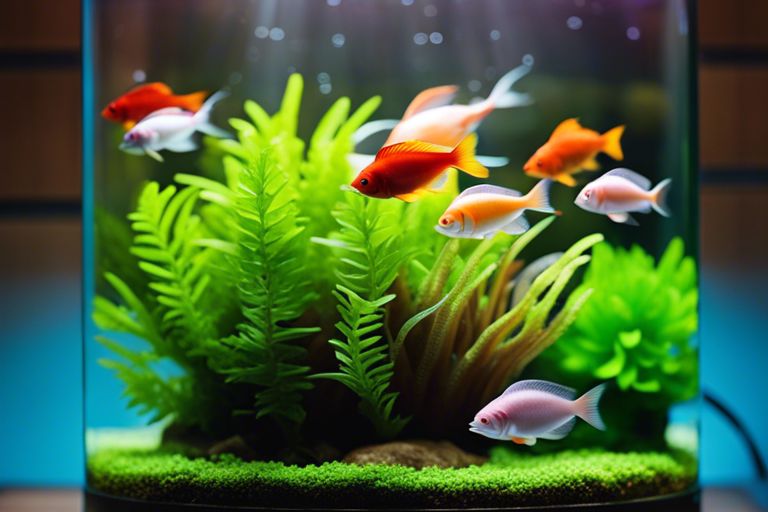The key to keeping your fish healthy and thriving in your aquarium lies in providing them with the proper nutrition they need. Just like any other living creature, fish require a balanced diet to support their growth, immunity, and overall well-being. By understanding the importance of proper fish nutrition, you can ensure that your aquatic pets lead long and healthy lives. In this blog post, we will explore the imperative elements necessary for maintaining optimal fish health through proper feeding practices.
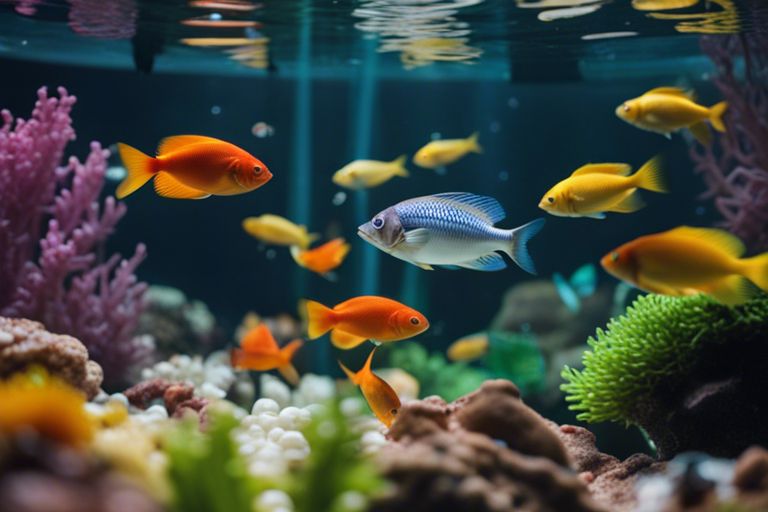
Understanding Fish Diets
Natural Feeding Habits of Various Fish Species
For a comprehensive understanding of fish diets, it is crucial to consider the natural feeding habits of different fish species. Fish can be categorized into herbivores, omnivores, and carnivores. Herbivorous fish primarily feed on plants and algae, while omnivores consume both plant matter and small organisms. Carnivorous fish prey on other fish, invertebrates, and sometimes even smaller vertebrates.
Commercial Fish Diets and Formulations
For optimal growth and health in captivity, many fish species require specially formulated commercial diets. These diets are designed to mimic the natural diet of the fish while providing all important nutrients in the correct proportions. Commercial fish diets come in various forms such as pellets, flakes, and frozen foods, catering to the diverse feeding behaviors of different fish species.
With advancements in aquatic nutrition research, commercial fish diets have evolved to address specific dietary requirements of various fish species. Formulations now take into account factors such as species-specific protein and fat ratios, digestive enzymes, vitamins, and minerals to ensure the overall well-being of the fish in captivity.
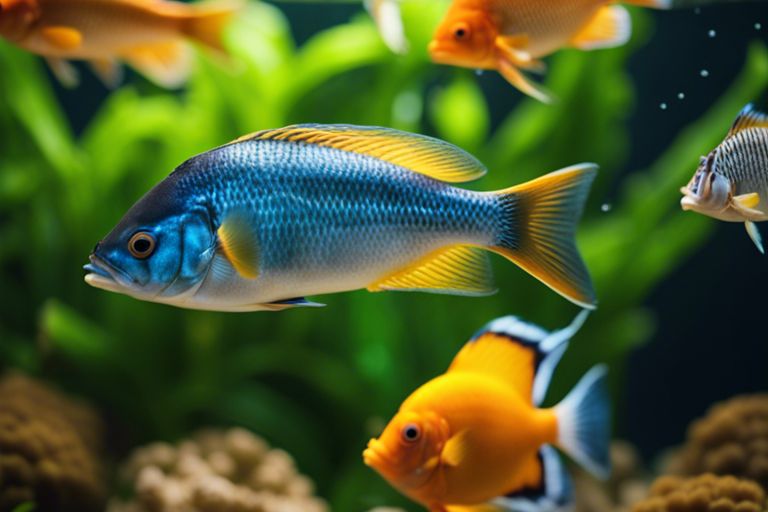
Nutritional Requirements
Macronutrients: Proteins, Carbohydrates, and Fats
It is imperative to understand the significance of macronutrients in a fish’s diet. Proteins play a crucial role in muscle development and overall growth. Carbohydrates provide energy for daily activities, while fats are imperative for maintaining cell structure and insulation. Balancing these macronutrients is critical for the overall health and well-being of your fish.
Micronutrients: Vitamins and Minerals
Minerals play a vital role in maintaining proper osmoregulation, enzyme function, and overall health in fish. Some imperative minerals include calcium, phosphorus, magnesium, and potassium. In addition, vitamins such as vitamin A, B, C, D, and E are crucial for various metabolic functions and immune system support. Ensuring your fish receive the right balance of micronutrients is key to their longevity and vitality.
Carbohydrates are another important nutrient that fish require in their diet. While often overlooked, carbohydrates provide a vital source of energy for fish, especially those with high activity levels. Incorporating the right amount of carbohydrates into their diet can help support their metabolic functions and overall health.
Feeding Practices
Feeding Frequency and Portion Control
Despite the popular belief that fish can eat as much as they want, proper feeding practices are crucial for their health. Portion control and feeding frequency play a significant role in maintaining the well-being of your aquatic pets.
The Impact of Overfeeding and Underfeeding
For optimal fish nutrition, it is important to find the right balance in feeding. Overfeeding can lead to water pollution, obesity, and various health issues, while underfeeding can result in malnutrition and stunted growth. It is crucial to understand the consequences of these practices.
Impact: Overfeeding can put a strain on your aquarium’s ecosystem by increasing waste production, leading to poor water quality. On the other hand, underfeeding can deprive fish of important nutrients, affecting their immune system and overall health. It is important to establish a feeding routine that matches the dietary needs of your fish species to ensure a healthy and thriving aquatic environment.
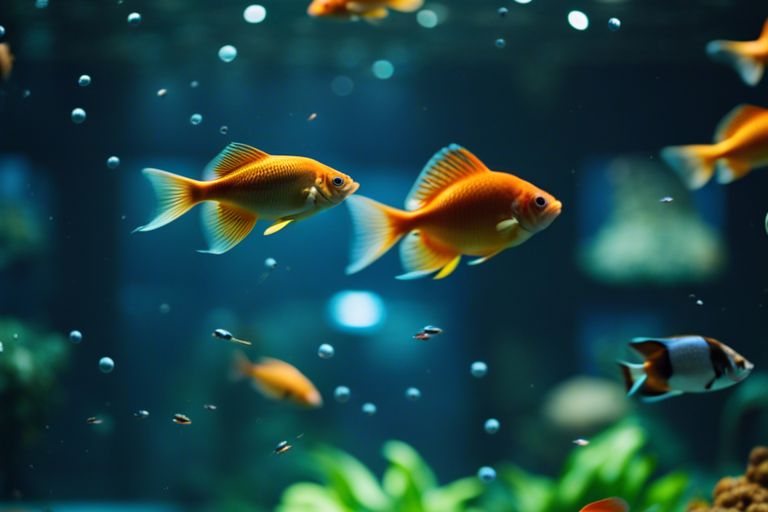
Health and Environmental Considerations
Link between Nutrition and Disease Prevention
For optimal health, proper nutrition plays a crucial role in preventing diseases in fish. Just like humans, fish require a well-balanced diet to support their immune system and overall well-being. Essential nutrients such as proteins, fats, vitamins, and minerals help strengthen their immune response and reduce the risk of infections. By providing a diet that meets their specific nutritional needs, fish are better equipped to ward off diseases and maintain their health in the long run.
Sustainable Feeding and Its Environmental Impact
With the rapidly growing aquaculture industry, the demand for fish feed has raised concerns about its environmental impact. The sourcing of ingredients for fish feed, such as fishmeal and fish oil, can lead to overfishing of marine resources and disrupt ecosystems. Sustainable feeding practices aim to reduce these negative impacts by using alternative protein sources, optimizing feed efficiency, and minimizing waste production. By adopting sustainable feeding practices, aquaculture can mitigate its environmental footprint and contribute to long-term ecological balance.
Understanding the link between proper fish nutrition and disease prevention is vital for maintaining the health and well-being of fish populations. By providing a balanced diet rich in vital nutrients, fish can build strong immune systems and resist common diseases. Additionally, adopting sustainable feeding practices can help mitigate the environmental impact of aquaculture activities, ensuring the long-term health of both fish and the ecosystems they inhabit.
Final Words
Now, it is clear that proper fish nutrition is crucial for the health and well-being of these aquatic creatures. By understanding the nutritional needs of fish, we can ensure they receive the important vitamins, minerals, and proteins necessary for growth, immune function, and overall vitality. Providing a balanced diet tailored to the specific species of fish we care for is key to promoting their longevity and quality of life. Let us continue to prioritize proper fish nutrition to support healthy and thriving aquatic environments.
FAQ
Q: Why is proper fish nutrition important?
A: Proper fish nutrition is crucial for maintaining the health, growth, and overall well-being of fish in aquariums or ponds. It helps prevent diseases, improves immune response, and enhances coloration.
Q: What are the key nutrients that fish require in their diet?
A: Fish require proteins, carbohydrates, fats, vitamins, and minerals in their diet. These nutrients play important roles in their growth, metabolism, and overall vitality.
Q: How can improper nutrition affect fish health?
A: Improper nutrition can lead to various health issues in fish, including stunted growth, weakened immune system, poor coloration, and increased susceptibility to diseases.
Q: How can fish owners ensure proper nutrition for their fish?
A: Fish owners can ensure proper nutrition by feeding a balanced and varied diet, choosing high-quality commercial fish food, and supplementing with fresh or live foods when necessary.
Q: What are some signs of nutritional deficiencies in fish?
A: Signs of nutritional deficiencies in fish may include abnormal swimming behavior, lethargy, loss of appetite, faded coloration, or unusual growth patterns. It’s important to address these signs promptly to prevent further health issues.
Q: Can overfeeding be harmful to fish?
A: Yes, overfeeding can be harmful to fish as it can lead to obesity, poor water quality, and digestive issues. It’s important to feed fish in moderation and avoid overfeeding to maintain their health.
Q: How can fish owners create a well-rounded diet for their fish?
A: Fish owners can create a well-rounded diet for their fish by offering a mix of commercial fish pellets or flakes, frozen or live foods such as bloodworms or brine shrimp, and fresh vegetables like peas or zucchini. This variety helps ensure that fish receive all the important nutrients they need for optimal health.
